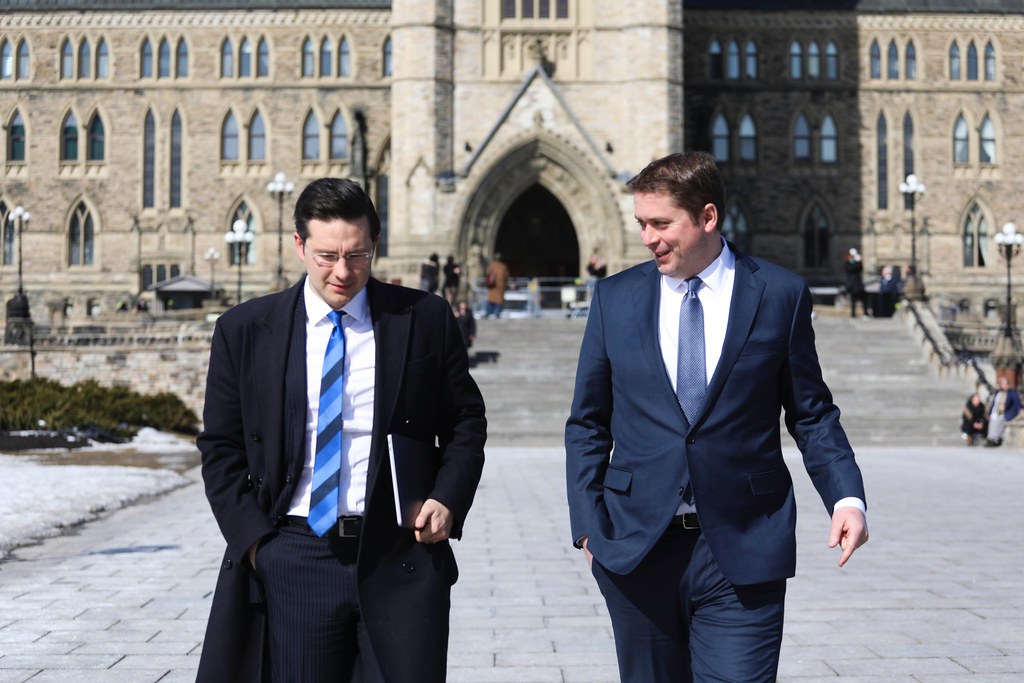Canada’s Climate Clash: Conservatives Rally Against Trudeau’s Carbon Plan
In a bold move signaling heightened political tension, Conservative Leader Pierre Poilievre has declared his intent to spearhead a motion of non-confidence against Prime Minister Justin Trudeau’s government. The focal point of this motion? A call for what Poilievre terms a “carbon tax election,” aiming to amplify the Conservatives’ stance on pollution pricing.
Addressing his caucus on Parliament Hill, Poilievre underscored his party’s unwavering resolve in pressuring the federal minority Liberals over their approach to pollution pricing. With a stern ultimatum, Poilievre warned Trudeau that failure to halt impending tax hikes on essentials like food, gas, and heating would prompt the introduction of a motion of non-confidence.
The Conservative stance gains momentum from widespread resistance across Canada, with both Conservative and Liberal premiers opposing the looming April 1 hike. Poilievre’s party has seized every opportunity to challenge the Liberals on the carbon price, leveraging growing discontent among the populace.
Following a recent opposition day motion urging the cancellation of the carbon tax hike, which highlighted significant provincial and public opposition, the Conservatives are now poised to escalate their efforts. Poilievre has set the stage for a decisive showdown with a motion calling for the dissolution of the House, framing it as a precursor to a “carbon tax election.”
Despite the Liberals’ supply-and-confidence agreement with the New Democrats, which secures their tenure until June 2025
This maneuver isn’t unfamiliar territory for the federal Conservatives. In 2020, they flirted with the idea of a non-confidence motion early in the parliamentary session. The call for a “carbon tax election” echoes sentiments voiced by the party previously, notably amidst scrutiny over Trudeau’s selective carbon-price exemptions for home heating oil.
While Trudeau’s government remains steadfast in its commitment to combat climate change, emphasizing the necessity of pollution pricing, the Conservatives are resolute in their opposition. The ongoing political discourse pivots around the efficacy of the carbon tax system, with Trudeau reaffirming his duty to prioritize Canada’s long-term interests over short-term popularity.
Despite the Liberals’ supply-and-confidence agreement with the New Democrats, which secures their tenure until June 2025, the Conservative push for a “carbon tax election” introduces a formidable challenge to Trudeau’s governance.
As the political landscape braces for a potential showdown, the fate of Canada’s environmental policies hangs in the balance. With the specter of a motion of non-confidence looming large, the nation awaits the outcome of this high-stakes confrontation between opposing ideologies.



